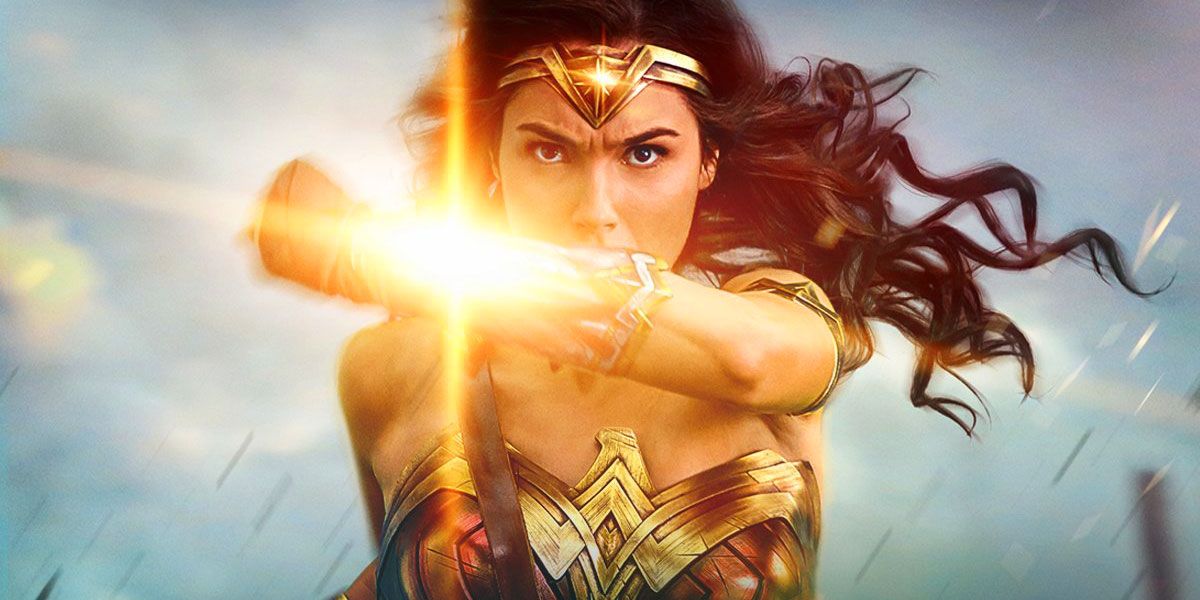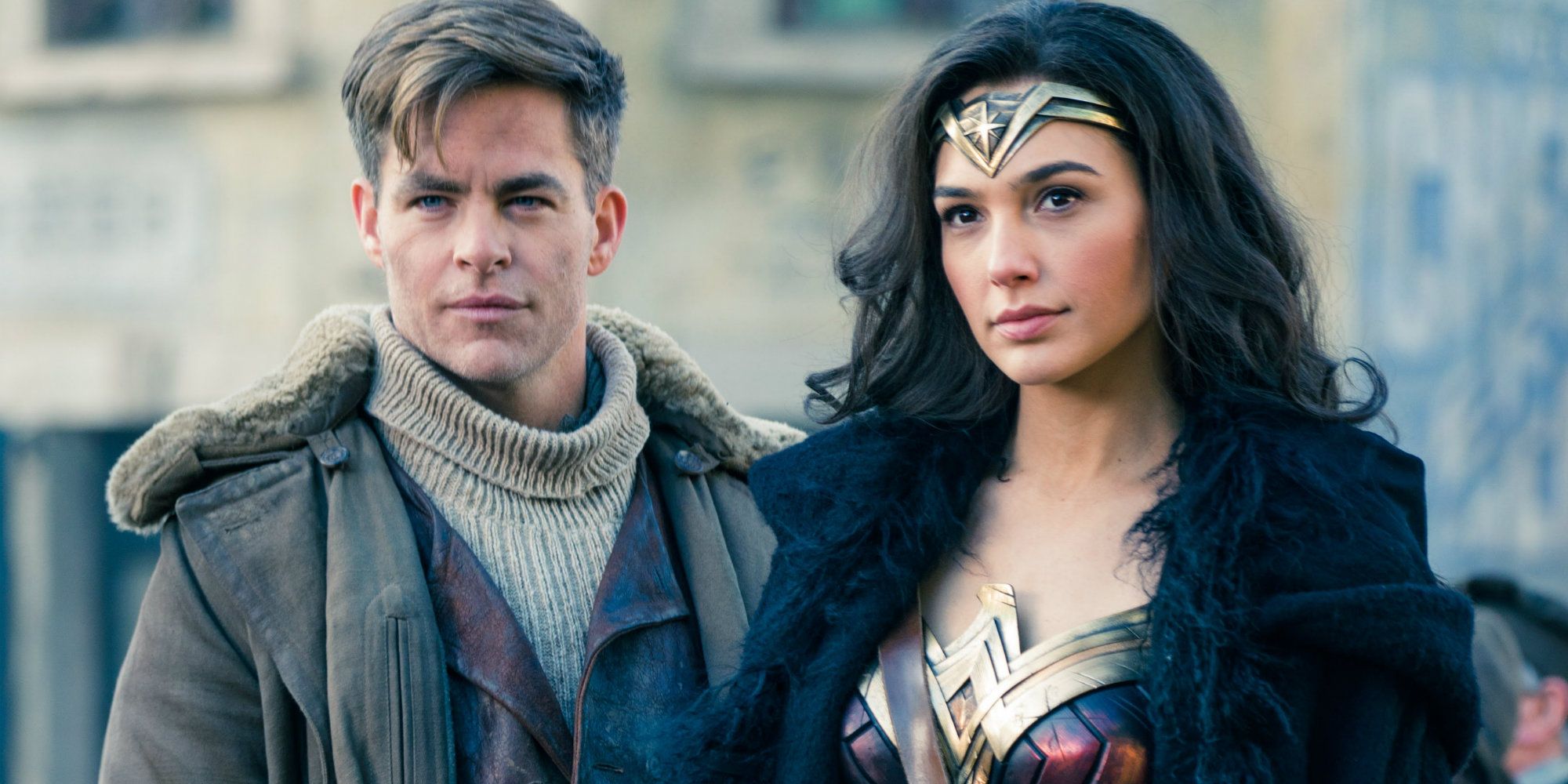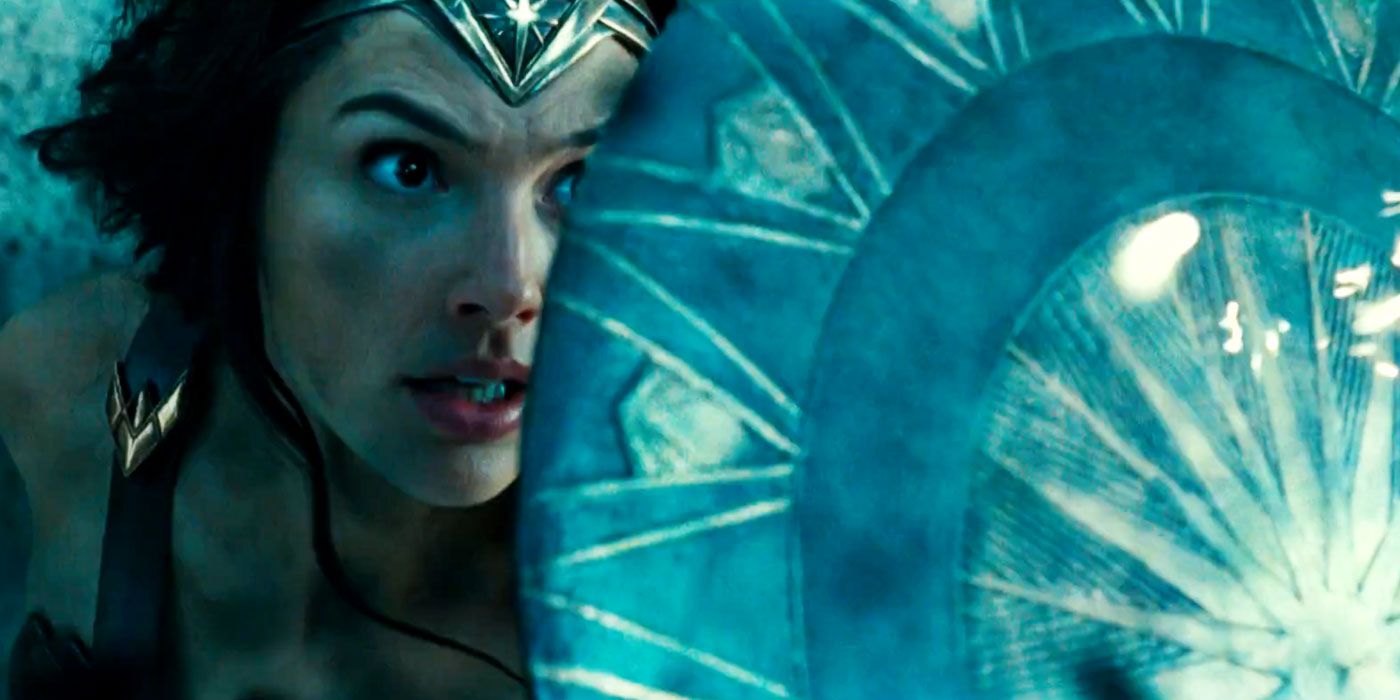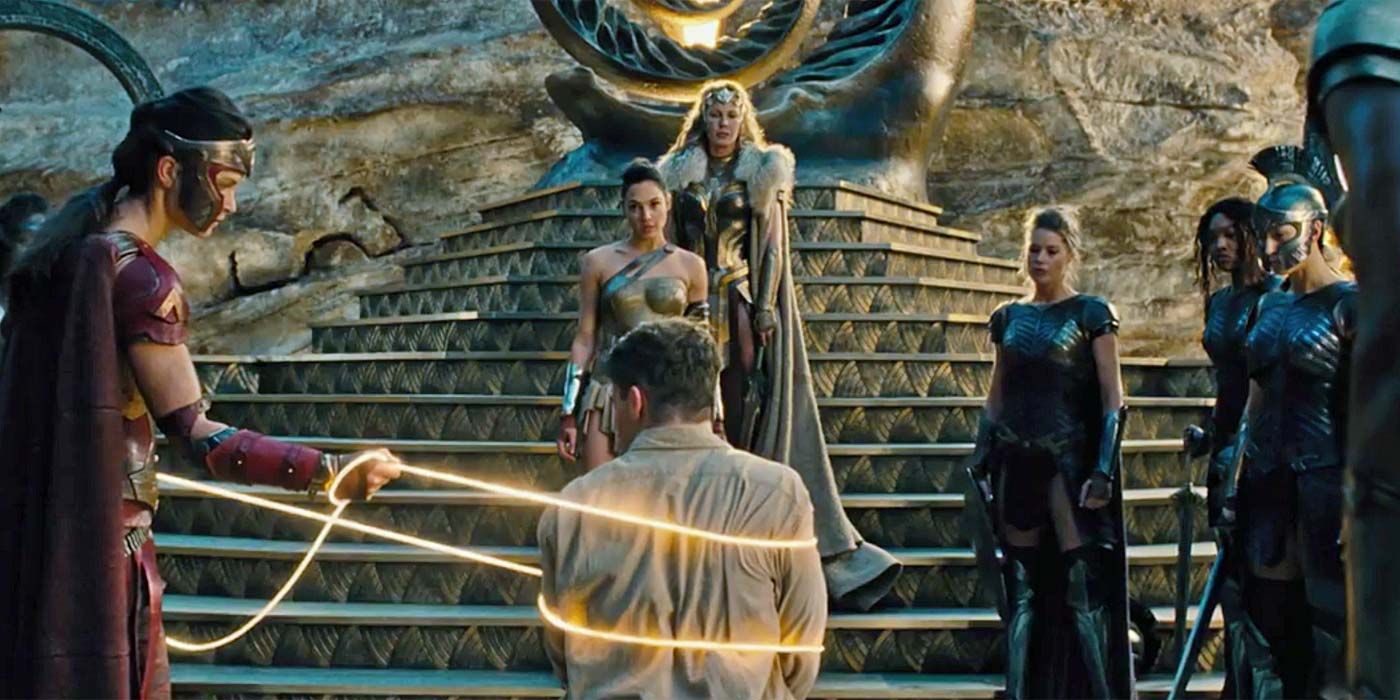While this weekend will tell the tale of Wonder Woman's performance at the box office, director Patty Jenkins' film has already won hearts and minds. It's a critical success -- it has 93 percent rating on Rotten Tomatoes, where it's "Certified Fresh" -- and early showings have received joyful, sometimes tearful, responses from fans who have waited a long time to see the 75-year-old DC Comics icon in her own film.
RELATED: Lifted By Positive Reviews, Wonder Woman Eyes $95 Million U.S. Debut
It's a gratifying outcome for a film that faced something of an uphill battle. The releases that preceded it in Warner Bros.' DC Extended Universe -- Man of Steel, Batman v Superman: Dawn of Justice (which introduced Gal Gadot as Wonder Woman) and Suicide Squad -- have seen a, let's say, complicated relationship with critics and fans, and Wonder Woman in particular has taken a winding road to the big screen. Multiple attempts passed through various stages of development over the past 20 years, including an abandoned adaptation by Joss Whedon. Even DC Entertainment President Diane Nelson referred to the character "tricky," insisting in 2013, "We have to get her right, we have to."
One of the people tasked with getting Wonder Woman right was Charles Roven, who has produced every DCEU film to date, as well as Christopher Nolan's Dark Knight trilogy. CBR spoke with Roven in Los Angeles about what makes Wonder Woman special, the positive reaction to the film, its relative lack of connections to the broader DC Universe, and his thoughts on this fall's Justice League and a possible Wonder Woman sequel.
CBR: For many years, there was a perception out there, fair or not, that Wonder Woman was difficult to translate to the big screen. Do you think there was any truth to that in the past? If so, how did you meet that challenge with this film?
Charles Roven: The challenging thing was to come up with a story that was an origin that in some way made sense to the character in Batman v Superman. "Oh, that's how she became that way. That's why she's who she is." That was challenging, and it didn't come right away.
We made a number of attempts that gave us some, but not a huge amount, of results. Ultimately, when Zack [Snyder] got together with [screenwriter] Allan Heinberg, they crafted the overview story, which took the part of the canon which made you realize that Wonder Woman, Diana, is one of the few -- maybe the only -- superhero character that knew she wanted to be a hero from the moment that she was a young girl. Once we knew that, we really had the basis of an interesting, different kind of superhero story that hadn't been told before, with any other character. So that was uplifting.
RELATED: Wonder Woman's "God-Killer" Sword, Explained
The thing that Patty did was, when she got involved and worked with Allan -- also, Geoff Johns was instrumental, because ultimately Allan had to go back to his television show -- Patty was so great about realizing, there's this character who's desperate to be a hero, who has all this compassion for mankind, and who's desperate to protect those who can't protect themselves. That's a great piece of character. But the other thing is, she doesn't know anything about the world. All she knows is Themyscira, where there are women who train and fight; this beautiful, idyllic place. She knows a lot of languages, she knows a lot of things, but she doesn't know anything about what the world is like out there. From the moment that mankind enters into her world with Steve, there's a lot of wonderful humor, because of her naiveté.
That's an interesting character -- this superhero who's innocent. That's when the whole thing [came together].
You hear a lot with superhero movies that the goal is take parts all over from the history, and this movie feels like it really succeeded in that -- you can't necessarily pinpoint one dominant influence; it feels like a little bit of everything. What were the elements of Wonder Woman that the team knew had to be in there? Was there anything that maybe doesn't work today that was shied away from?
We had a lot of debate about setting the period of her entry into man's world. At one point, it was going to be the Crimean [War], at another point we talked about if it should be World War II. Ultimately, we landed on World War I for a few reasons that we thought were really good for the movie. One was, it allowed her to come to London just when women were getting the right to vote. We thought that her blending into the mores of society in London at that period was going to be fun -- and it turned out to be fun.
Also, she comes from a culture of hand-to-hand battle, where it's the good fight, and it's an honorable fight, and if you die, it's an honorable death, because you're looking at your enemy in the eye, and you both have a certain honor in the fight. And now, this war is completely different from anything she's ever experienced, because it's all about trench warfare, and these weapons that have long-range capability, and these things called airplanes. It was the first time you engaged in warfare at a distance, so you could do it with not a lot of responsibility for what you were doing to the other side, because you weren't actually looking at the devastation.
Those were all really interesting elements, and things that would be horrific to her, and unusual to her.
This is now the fourth film in the shared universe that started with Man of Steel, and from the initial reaction, something that's striking is that a lot of people who were skeptics of those other films have been very positive about this one.
I'm really happy about that.
As someone who has been involved in all of those movies as producer, what do you think this one does differently?
I think that, first of all, Wonder Woman is an extremely positive character. She's infectious. You want to really root for her in every way, and you track her emotions. She's a completely relatable character. Also, I think the film, even though there are some sad moments in it, is uplifting. I think those things are really what helps galvanize people towards it. And I'm happy about that. You make movies and you want them to be embraced, revered; not just financially successful. You also have to take the criticism, and you have to walk a careful line of still having your own personal artistic integrity, but also listen to what's being said.
RELATED: Wonder Woman Films "Ultimately" Have to Include Invisible Jet, Director Says
With Wonder Woman, I don't think it would have been possible to make a dark character, because that's just not who that character is. You would be completely violating the canon. So it made it a lot easier to have that refreshing feel to it that the other movies didn't have. BvS is definitely a dark movie, and I think you had to go pretty dark in order to get these two guys you actually like to fight each other. If you didn't, maybe you wouldn't even believe that they would ever fight each other. I think that when you see Justice League, you'll see that out of that darkness comes a lot of fun, in a movie that does still have some drama to it.
We tried very hard -- Patty leading the way, and Gal -- to make sure the integrity of the character from the canon came out. I think that goes a long way to why I think people might be embracing the movie.
Speaking of Patty Jenkins, this seems like practically the movie she was meant to make, given her clear enthusiasm for the character. What can you share about the work she did here, and arriving at her as the choice to direct? It's not easy to direct the first solo movie for a 75-year-old character that everybody knows.
I had been a fan of Patty's since Monster. I really, really, really liked the work she did on The Killing. When we were interviewing directors, her desire to make Wonder Woman, even before I had a desire to make Wonder Woman -- Wonder Woman was not on my radar to be made into a movie until we expanded the DC Universe, but it was on Patty's radar. She was involved as the director of [Thor: The Dark World] for a while. So in her DNA, we knew, was this desire to make one of these movies.
Then when we met her, first of all, she speaks so clearly about comic book characters, and what they mean, what we want them to mean, why we associate with them, why they're so meaningful to our culture. In particular, Wonder Woman. And if you spend any time talking to her, you know she's got this amazing sense of humor -- which Monster didn't really have, The Killing doesn't really have. "Whoa, there's something unmined here!" Let's go forward with that. How about the chemistry between Wonder Woman and Steve? When you see it, it seems like, "That must have been a fun set to work on, right?"
Other than the framing sequences of Diana receiving the package from Bruce Wayne, there's not a lot of overt connections here to the broader DC world. Was there ever a pressure to throw in overt connections? It feels deliberate that this film was meant to be something that would stand on its own, but it would have been easy to go the other way.
We had the benefit in Batman v Superman, and her saying, "I kind of dropped out." What caused it? We saw the picture. We knew the picture was in that period. She hasn't really been a part of the nomenclature in the DC Extended Universe -- you've got Batman who people know about it, you have Superman who people know about it, but not many people, in the conceit that we came up with, knew about Wonder Woman.
Once we said, we have all this freedom, all we really have to do is make sure we figure out a way to tie in that photograph... [Laughs] We can do anything we want!
There feels like so much more room for this character to grow on screen. She's in Justice League next, but what would you, as a storyteller, like to see in a theoretical sequel?
I know I've got to take her from the end of World War I to someplace. But whether it's something in between -- something in the time between that and BvS, I just don't know. Or maybe it's something after Justice League. I just don't know.
I'm not going to say someone hasn't said, "Hey, what about this idea?" "What about that idea?" But other than it being that nonspecific, just a suggestion, we haven't really gotten into anything that we're going, "This is exactly what we're doing."
On that note, what role does Wonder Woman play in the team dynamic of Justice League?
In Justice League, it really does pick up almost immediately after the end of BvS. Bruce is determined to find metahumans, to help a situation that he thinks is coming, if not already there. I wouldn't say he's the best recruiter in the world. [Laughs] She's a lot better.
Wonder Woman is in theaters now, and the character will next be seen in Justice League, scheduled for release on Nov. 17.




